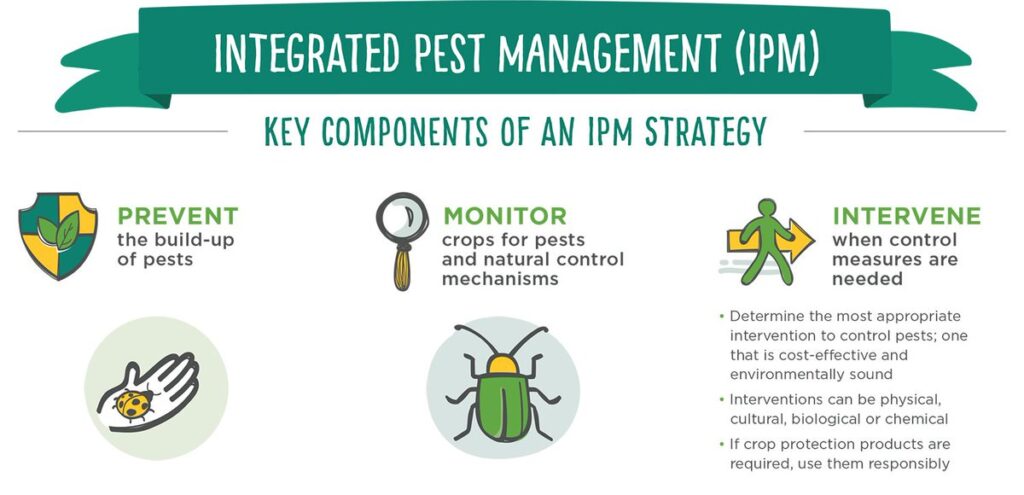Pest management is very important in agricultural settings. There are several natural methods and chemical methods to control pests that farmers use commonly. When you search the internet about how to control pests in agriculture you will get plenty of options to choose from. But approaching a pest control company is a wise option that will provide good results.
Need for pest management in agriculture
Pests are always uninvited guests in the agriculture which cause potential damage to the crops. The damage and infest the crop, reduce agriculture production, and also threaten food security. Most farmers depend on chemical pesticides to control pests.

The unscientific use of this may lead to health issues and damage to the crops. Hence before applying a strategy on your own you need to get the consultation of a good pest control company. The new star pest control in UAE is one of the best pest control companies across Dubai, Sharjah, Abu Dhabi, and also in Ajman.
The ways to manage pests in farming
Pest management in farming is achieved by using appropriate cropping techniques, biological control, and natural pesticides. We can manage the weed control, the main problem for farmers through cultural practices including mechanical cultivation, mulching, and also flaming. The methods to control pests in agriculture are,
- Integrated pest management
- Crop rotation and intercropping, and also
- Use of pesticides
1. Integrated pest management
Integrated pest management is one of the best methods to control pests in agriculture. The goal of this strategy is to prevent pests from reaching economically damaging levels without causing a risk to the environment. So, IPM is the best combination of all possible approaches in pest management with the least reliance on chemical pesticides.

2. Crop rotation and intercropping
The method of crop rotation uses alternating the species of crops that are grown every year. It helps to manage pests and also increases the fertility of the soil. Intercropping involves the simultaneous cultivation of two or more crops on the same field. It helps to reduce the attraction of pests to the host plant.
3. Use of pesticides
Using pesticides to control pests in farming is a standard method. Both the chemical pesticides and organic pesticides are using in according to the availability and convenience of farmers. Methods to control pests in agriculture. The most commonly applied pesticides are insecticides, herbicides to kill weeds, rodenticides to kill rodents, and also fungicides to control fungi and mildew.
Pesticides are chemical compounds that use to kill pests, including insects, rodents, fungi, and unwanted plants. Examples of specific synthetic chemical pesticides are glyphosate, Acephate, Metaldehyde, Boric Acid, DDT, and also Malathion.
Exposure to pesticides can be through contact with the skin, ingestion, or inhalation. The type of pesticide, the duration and route of exposure, and also the individual health status determine the possible health outcome.

Are pest control chemicals harmful to humans?
- Organic pesticides
Organic/natural pesticides are the pesticides that come from natural sources like plants (pyrethrum, rotenone) and minerals (boric acid, cryolite, or diatomaceous earth). Methods to control pests in agriculture. Organic pesticides are largely insecticides.
Even though it is extracted from natural sources, it is still a pesticide. Some organic pesticides are as toxic, or even more toxic, than many synthetic chemical pesticides. So, carefully read the label of all pesticides you use and follow the instructions exactly as on the label.

